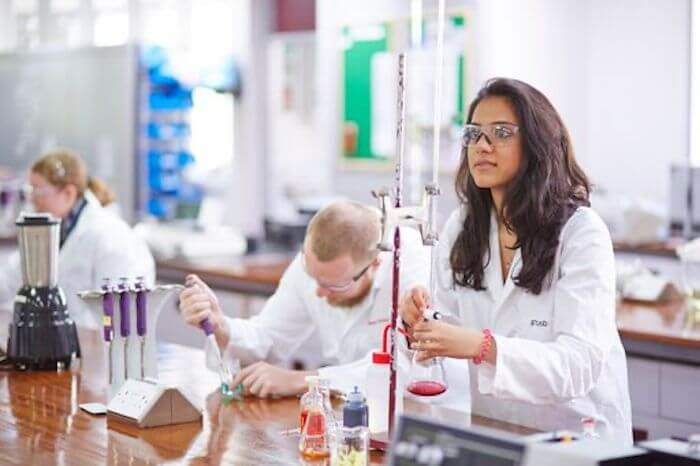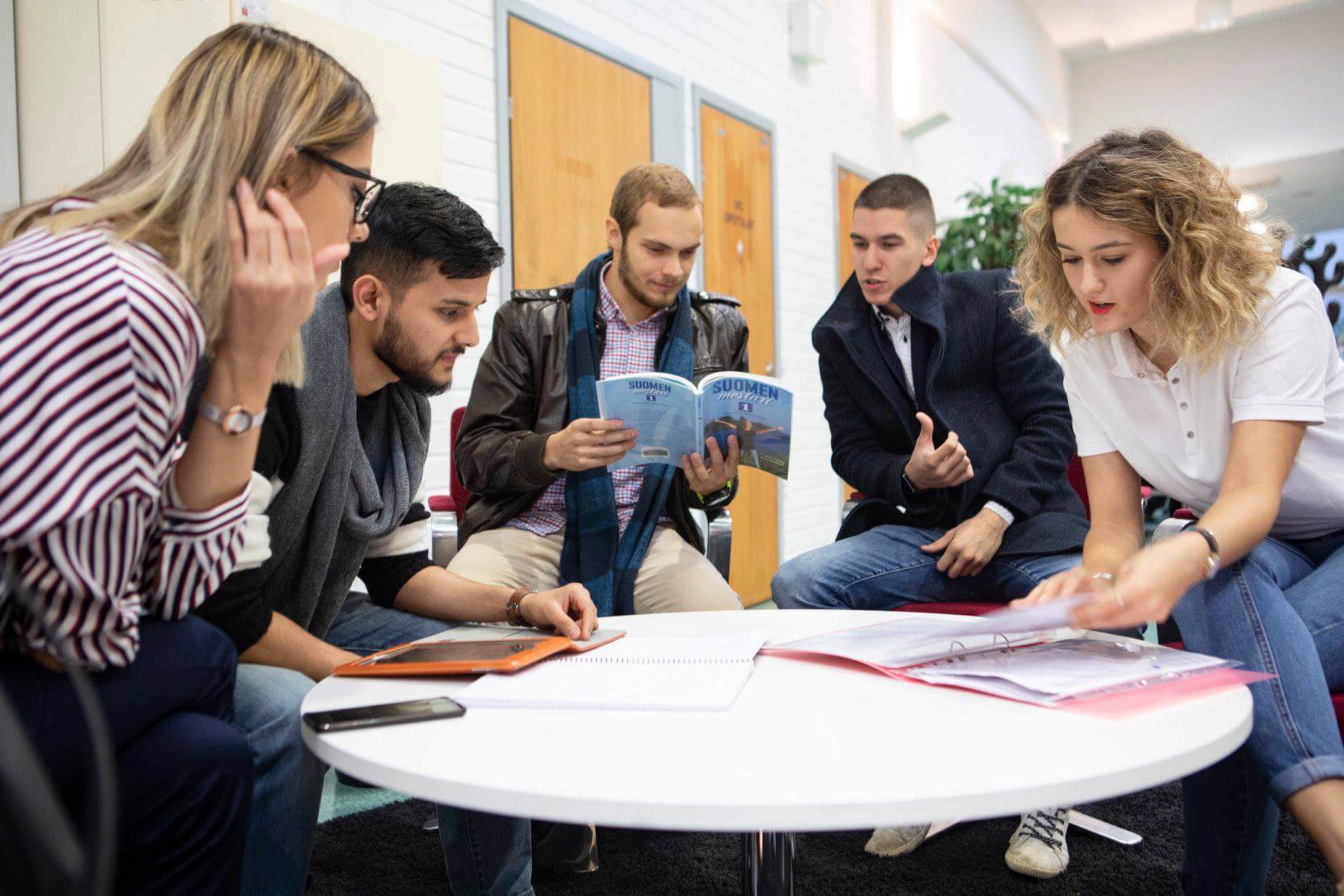
From Antarctica to the Arctic, global warming to disaster risk reduction, sustainable development is one of the major social challenges facing the twenty-first century. The dire need to mitigate climate change today provides a strong motivation for developing renewable energy and moving away from fossil fuels as the main energy resource, thereby addressing the energy crisis at the same time.
Taking up a science course that addresses pressing areas such as Human Health, Energy and Climate Change provides a broad interdisciplinary perspective to understanding how the world works, enabling us to tackle pressing issues such as ensuring that humans have access to clean water and air, and the resources required for agriculture and industrial activity.
A distinctive feature of sustainability and sciences based programmes is its balance between sustainable natural sciences and sustainable humanities. These courses challenge students to combine skills and knowledge from a variety of different fields including biology, chemistry, physics, geography, Earth and marine sciences, and social sciences.
Here are four universities that offer programmes that are great for the environment and better for future generations.
Czech Technical University of Prague

Science embodies a way of questioning, testing and analysing the world. Source: Czech Technical University of Prague
Prague is one of Europe’s fastest-growing study abroad locations. While it is a dynamic, artistic and modern city, it’s the people, lifestyle, academics, safety and affordability that attract students from all around the world. Home to students from over 100 countries, Czech Technical University in Prague is one of the largest and oldest technical universities in Europe, belonging to the top 10 best and biggest research institutions in the country.
Science is more than just lab coats, test tubes and equations. It embodies a way of questioning, testing and analysing the world. Offering over 45 bachelor’s, master’s and doctoral programmes fully in English, the university demonstrates its strength in research and applied science through unmatched programmes in Civil Engineering; Mechanical Engineering; Electrical Engineering; Nuclear Science and Physical Engineering; Professional Pilot and more that can neither be found in the country nor Central Europe.
There are a high number of private companies, national and international research organizations and institutions that partner with the CTU Prague, such as Porsche engineering, Continental, Profesia, Czech Academy of Science, Skoda, and Prague Convention Bureau. They encourage students to innovate, discover, and tackle worldwide issues. To implement the vision of the European Universities Initiative and the European Education Area, CTU in Prague is part of the EuroTeQ Engineering University project — creating a leading European platform for technical education and joint educational programmes.
CTU in Prague organises an orientation week for new International degree and Exchange students to familiarise them with the university’s educational system. To accommodate current times, the university has reduced its tuition fees for PhD students to 20 euros per semester (40 euros per year). To learn more about this future-focused university, click here.
University of Leeds

Fieldwork and practical experience are at the core of science programmes at the University of Leeds. Source: University of Leeds
Established in 1904, the University of Leeds is committed to embedding sustainability in everything they do. The university’s international mix of staff and students make up a vibrant community that is home to some of the most innovative and globally significant research and teaching.
Through the university’s unique combination of disciplines and specialist expertise, grand challenges of this century, notably poverty eradication, securing social justice, environmental change and sustainable urbanism are addressed at the Faculty of Environment;s schools of
School of Earth and Environment; School of Food Science and Nutrition; and Geography. Fieldwork and practical experience are at the core of these programmes, providing students with valuable skills for a career in the environmental sector.
The Faculty of Engineering and Physical Sciences covers the core engineering disciplines of Chemical and Process Engineering; Chemistry; Civil Engineering; Electronic and Electrical Engineering and more. The faculty spans distinct academic disciplines that promote leading advances in science and technology, impact hugely on all aspects of modern living and shape our future as a species. It brings together diverse topics, such as carbon dating and astrophysics, to create a dynamic multidisciplinary setting for students and academics to thrive.
HAMK Hame University of Applied Sciences Finland

Courses at HAMK give students the flexibility and freedom to shape their path. Source: HAMK Hame University of Applied Sciences Facebook
Set in beautiful Helsinki, the HAMK Hame University of Applied Sciences, Finland is a multidisciplinary, workplace-orientated higher education institution. A HAMK education prepares students through its programmes in the fields of bioeconomy, wellbeing, technology, entrepreneurship and business, and professional teacher education.
Here, the courses give students the flexibility and freedom to shape their path, offering the opportunity to explore a broad range of scientific disciplines at all levels of study. Students can choose from bachelor’s programmes in Computer Applications; Construction Engineering; Electrical and Automation Engineering; Information and Communication Technology, Bioeconomy; International Business; Mechanical Engineering and Production Technology; Smart Organic Farming and Smart and Sustainable Design.
Studying with leading researchers in state-of-the-art facilities means the skills gained can take students anywhere in the world. Graduates who want to upskill or specialise in a different field can opt for applied sciences in Sustainable Bio-economy; Innovative Expertise; Intelligent Services; and Technology for the Future.
University of Lisbon
As one of the largest and most prestigious universities in Portugal and Europe’s leading universities, the University of Lisbon is a research-rich, business-focused, professional university with a global reputation for academic quality. The university facilitates the contemporary evolution of science, technology, arts and humanities through it’s quality of teaching, research, innovation and culture.
ULisboa’s faculty of sciences has an exciting and extensive portfolio of subjects including Biomedical Engineering and Biophysics; Engineering Physics; Energy and Environmental Engineering; Technological Chemistry; Biochemistry; and so forth. The faculty is actively engaged in research and academics are internationally and nationally renowned within their fields. These programmes promote ground-breaking research that is responsive to the science and technology, health and wellbeing, economic and social and arts and cultural needs of the communities.
ULisboa’s Interdisciplinary Thematic Networks covers key areas in Agro-Food and Forestry (redeAGRO); Health (redeSAÚDE); Smart Urban Mobility (redeMOV); and Sea (redeMAR). This initiative streamlines strategic partnerships with organisations and institutions from the public, social and private sectors to mobilise the university’s professors and researchers.
*Some of the institutions featured in this article are commercial partners of Study International







